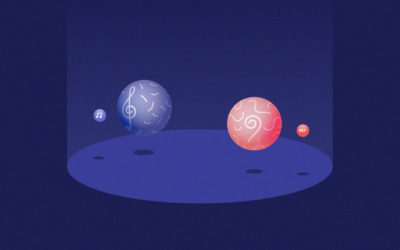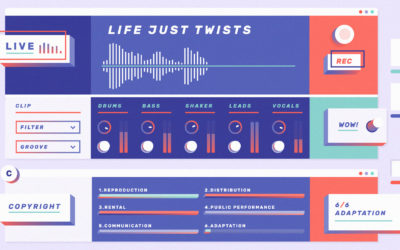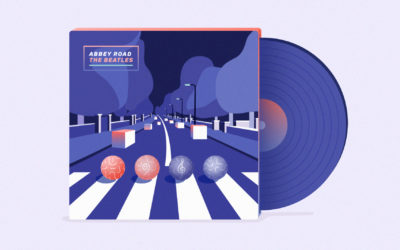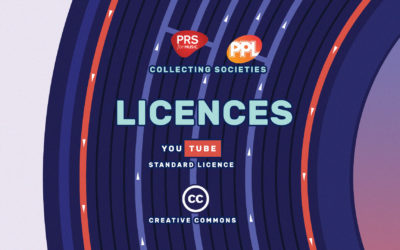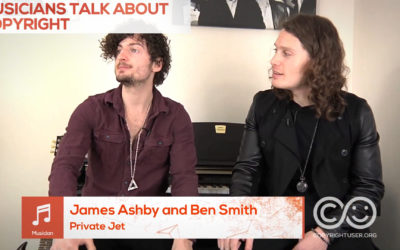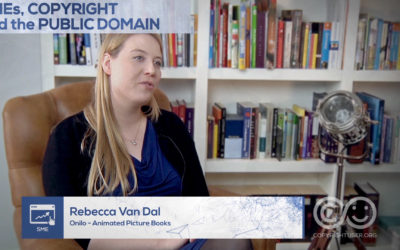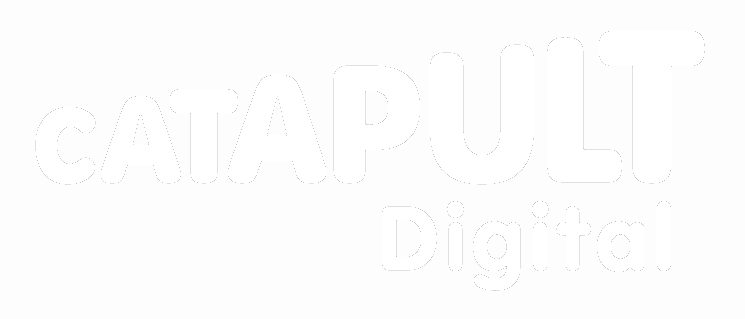Going for a Song
Going for a Song tells the story of Tina and Ben, a music composer and a lyricist who create an original song and discuss how to market it. Check the texts below the video and learn how UK copyright law regulates different aspects of the journey of a song, from its creation to its distribution.
Tracks
Supplementary educational materials addressing important topics such as what constitutes a song, how to protect a song with copyright, sound recording rights, publishing and record deals, among others.
1. What constitutes a song?
A song is the combination of melody and words. Each is protected by copyright: the melody as a musical work and the lyrics as a literary work. One or the other could be used separately and still be protected.
2. Protecting your song
Copyright law protects against copying so the song must be ‘original’ and in some ‘fixed’ form (that could be copied). Tina and Ben could fix the song by recording it on a mobile phone or any other means of doing so, e.g. by writing it on a piece of paper.
3. Sound Recording Rights
The copyright in a sound recording is different from the copyright in a song in a number of significant ways.
4. Publishing and Recording Deals
Traditionally there are two main types of contracts or ‘deals’ musicians are likely to seek in order to reach a wider audience: a music publishing deal and a record deal.
5. Self-release: distributing music directly to the public
In the digital age many costs involved in recording and marketing music have been significantly reduced by the availability of affordable, accessible technologies.
6. Public Performance, Royalties and Collecting Societies
To reduce transaction costs for rights holders and rights users alike, collecting societies have been established in order to collectively negotiate and issue blanket licences to users, and to collect and distribute royalties to rights holders.
7. Licences
Aside from lyrics and melody of the song, and the recording of the music, copyright also subsists in the script, the artwork, the voiceover and the film/video itself.
Going for a Song – Infographic
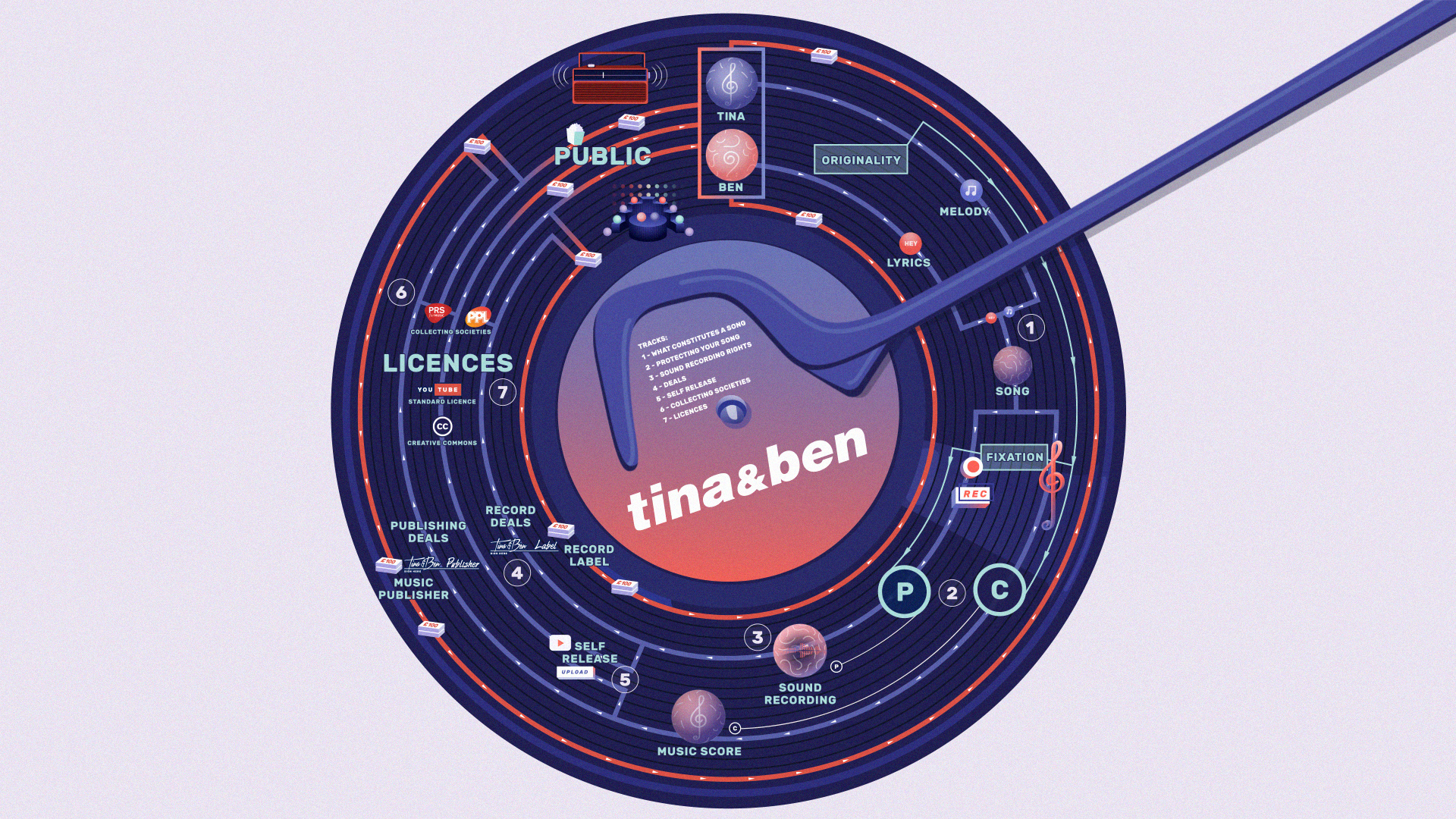
You can download the infographic illustrating the different copyright aspects of creating and distributing music here.
Credits
Video
Directed by Bartolomeo Meletti and Ruth Towse
Script: Kenny Barr, Bartolomeo Meletti, Ruth Towse
Art Direction & Animation: Marco Bagni
Storyboard & Illustrations: Sophie Natta
Copyright Advisor: Ronan Deazley
Production: Worth Knowing Productions Ltd
Web Design: Pete Bennet
Music
Original Song: Twists And Turns
Composers: Barrie Gledden / Kes Loy / Richard Kimmings
© and ℗ 2007, Audio Network Limited
Version for Going for a Song Recorded and Produced by Richard Kimmings
Performers: Kes Loy (Ben) and Lucy Kimmings (Tina)
Used under licence.
Sound Design: Sarc:o
Music Advisor: Simon Anderson
Voice-over Artists (londonvoiceover.co.uk): Anna Neale (Tina) and Duncan Wilkins (Ben)
Copyright notice
The resource Going for a Song is offered with a combination of licences for its component parts: the visual elements and the accompanying texts (‘Tracks’) are distributed under CC BY and free for everyone to reuse (as most of the content offered by CopyrightUser.org); whereas the music retains its original licensing arrangement (for more information see Track 7). If someone intends to reuse the song Twists and Turns (or the version specially produced for our video) in their own project, they need to buy a licence from Audio Network: https://www.audionetwork.com/browse/m/track/twists-and-turns_12460
Related
Musician
Is it possible to lend purchased content to others? 2. How many notes can be used from someone else’s song? Is there a maximum length that can be used from an original song?
Licensing & Exploiting
If you own the copyright in a work, you are free to exploit it on your own or license the use of it to another party (such as a book publisher). ‘Exploit’ in this context means to develop or make use of it.
Copyright in SMEs
This section provides guidance on strategies that creative firms have employed to effectively manage copyright challenges.

